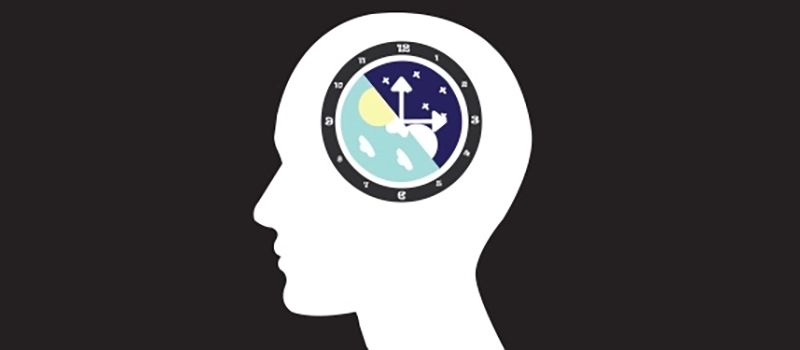
Some people sleep well every night, all year long. However, that is true of very few people and if you’re one of those that falls asleep with ease then you can consider yourself quite fortunate. Most people know of their bodily clock and how circadian rhythm works to establish wake and sleep times. In the modern world it is easy to have your rhythm thrown out of whack, and if you’re the type to ‘burn the candle at both ends’ it may well be inevitable. Circadian rhythm disorder can be caused by any number of reasons and the change of seasons may contribute. Neurotransmitter balancing medications may help but shouldn’t be relied on long-term.
The change of seasons from winter into spring as well as the added sunlight that comes with it isn’t much of a problem, when it comes to people’s sleep / wake cycle. Once we’re into the back half of September and the days grow shorter and the nights grow longer it can negatively affect people who do not have set sleep and wake times. There is a connection between a person’s time in light and darkness related to melatonin production. If you’re not familiar with melatonin, it’s a hormone released from the brain to induce feelings of sleepiness. Most people have heard of it, but one of things they likely won’t know is that it regulates body temperature.
If you’re in rhythm and not dealing with circadian rhythm disorder, then melatonin will be released in the right amount and at the right time, and a person’s body temperature will lower as a result. Not that it necessarily lowers to the point that you feel you must get into bed and under the covers, but there is an evolutionary slant to it. If you’re still getting up at 7am to go to work everyday but find yourself unable to wind down and fall asleep well before midnight then you may have insomnia. Does this sound like you? Well then, you’ll want to know how to reset circadian rhythm and there are ways in which you can do that.
If you’re a working person and a parent, you will very likely find that by the end of the day you’re so worn out that the difficulty would be in staying awake rather than falling asleep. Circadian rhythm disorder can mean a different reality though, but what exactly is it? We’ve explained how your circadian rhythm is somewhat like an internal clock in your body that regulates body processes based on where you are in the day. If the gears in this clock aren’t working properly then it’s not going to be easy for you to fall asleep, stay asleep, or wake up in the morning.
In a worst-case scenario people will have struggles with all 3 of these, and if so, it is definitely going to have associated detrimental effects on your life. One of the most concerning for people is decreased performance and productivity at work, and we can all agree that must be a concern. Depression could be a contributing factor too, but this is something that only a doctor can legitimately determine.
There are different types of circadian rhythm disorders:
Advanced Sleep-Wake Phase Disorder – You sleep very early in the evening. More common in middle-aged adults
Delayed Sleep-Wake Phase Disorder – Unable to fall asleep until very late. Most common in adolescents and young adults
Non-24 Hour Sleep-Wake Rhythm Disorder – Bedtime moves progressively later and later as well as daytime tiredness increases
Irregular Sleep-Wake Rhythm Disorder – Sleeping at shorter and more random intervals during the night and waking up at different times which creates insufficient amounts of rest required to function
When it comes to seasonal changes affecting sleep it is irregular sleep-wake rhythm disorder that occurs most prominently. So, then the question becomes how to reset circadian rhythm in the fall if this is when you start to have sleep disturbances.
The best thing you can do to counter a circadian rhythm disorder of this type is to expose yourself to natural light early in the morning. Try to spend 2 to 10 minutes outside shortly after you wake up, and if the weather’s not playing along you can use a sunlight therapy lamp at the breakfast table. Another good idea is to try to go to bed progressively earlier each day across the span of a few weeks. Incremental changes are best, and what that means is to lie down in bed 10-15 minutes or so earlier each day and you may find that eventually you’re able to get to sleep an hour earlier.
The standard guidelines are to avoid overstimulating yourself in the evening as well as any food and drink after 8pm. If you need to use digital devices it’s best to use blue light blocking glasses in the evening to let your body naturally drift off.